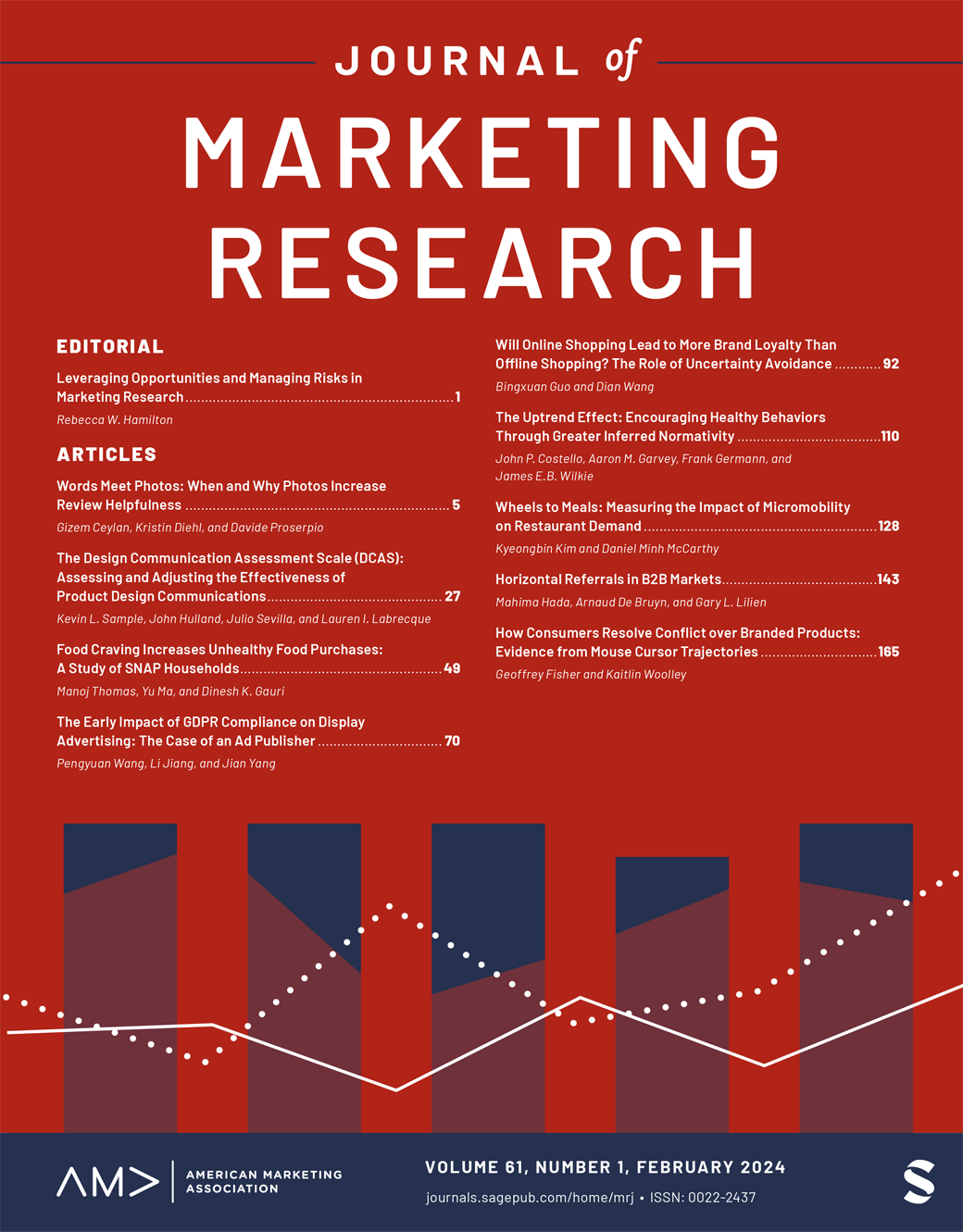EXPRESS:社会保障申请年龄意向的动机是什么?测试行为知情干预与个体差异
IF 5
1区 管理学
Q1 BUSINESS
引用次数: 4
摘要
选择何时申请社会保障局(SSA)福利是美国老年人财务健康的一个重要决定。虽然过去的工作已经检查了索赔决策的异质性,但相对较少的研究系统地测试了预测早期或延迟SSA索赔的心理因素或旨在帮助索赔决策的理论驱动干预措施的有效性。一项预先注册的实验和三次重复检验了预期索赔年龄在多大程度上是理论驱动干预、个体差异测量以及干预与个体差异之间相关相互作用的函数。提高预期申请年龄的干预措施是那些表明延迟申请可能是正确选择的干预措施(即,禁令规范,关于遗憾的共通性的信息),那些强调延迟申请的经济利益的干预措施(即,收益框架,关注对未来自我的利益),以及那些通过自我反思引导偏好构建的干预措施(即,关注右尾寿命,理性生成)。此外,跨期折现、主观预期寿命和对SSA福利的感知所有权预测了预期申领年龄。这项研究促进了我们对退休人员决定提前或推迟索赔的理解,并为政策制定者、财务规划师和消费金融组织提供了实用的见解。本文章由计算机程序翻译,如有差异,请以英文原文为准。
EXPRESS: What Motivates Social Security Claiming Age Intentions? Testing Behaviorally-Informed Interventions Alongside Individual Differences
Choosing when to claim Social Security Administration (SSA) benefits is an important decision for older Americans’ financial health. While past work has examined heterogeneity in claiming decisions, relatively little research has systematically tested the psychological factors that predict early or delayed SSA claiming or the effectiveness of theory-driven interventions meant to help with the claiming decision. A pre-registered experiment and three replications examined the extent to which intended claiming age is a function of theory-driven interventions, individual difference measures, and relevant interactions between interventions and individual differences. The interventions that increased intended claiming age were those that suggest that delayed claiming may be the right choice (i.e., injunctive norms, information about the commonality of regret), those that highlight the financial benefits from delayed claiming (i.e., gains framing, focus on benefits to the future self), and those that guide preference construction through selfreflection (i.e., focus on right-tail longevity, reason generation). In addition, intertemporal discounting, subjective life expectancy, and perceived ownership of SSA benefits predicted intended claiming age. This research advances our understanding of which retirees will decide to claim earlier or later and offers practical insights for policy-makers, financial planners, and consumer finance organizations.
求助全文
通过发布文献求助,成功后即可免费获取论文全文。
去求助
来源期刊

Journal of Marketing Research
BUSINESS-
CiteScore
10.30
自引率
6.60%
发文量
79
期刊介绍:
JMR is written for those academics and practitioners of marketing research who need to be in the forefront of the profession and in possession of the industry"s cutting-edge information. JMR publishes articles representing the entire spectrum of research in marketing. The editorial content is peer-reviewed by an expert panel of leading academics. Articles address the concepts, methods, and applications of marketing research that present new techniques for solving marketing problems; contribute to marketing knowledge based on the use of experimental, descriptive, or analytical techniques; and review and comment on the developments and concepts in related fields that have a bearing on the research industry and its practices.
 求助内容:
求助内容: 应助结果提醒方式:
应助结果提醒方式:


